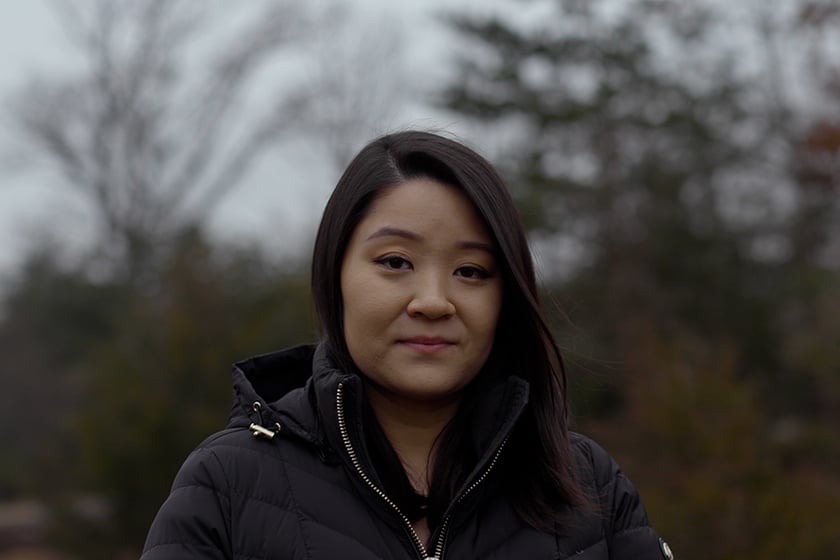Shedding Light on The Powerful Impact of a Criminal Record

Imagine receiving a job offer. Your resume demonstrates the right qualifications. You feel good about the interview. It's all coming together—until one thing makes the opportunity fall apart.
A college graduate, Angela once applied to work at a title company in Virginia. She had the relevant skills, prior work experience, and a bachelor's degree from The Pennsylvania State University. But she also had a criminal record from past DUIs.
Initially, the company offered Angela the job. After processing the background check, the company rescinded the offer.
Angela's challenge belongs to a long list of legal barriers that people with a criminal record face. Known as collateral consequences, these hindrances affect nearly every facet of life, from employment and education, to housing and voting. The National Inventory of Collateral Consequences Conviction documents more than 44,000 legal collateral consequences that exist today—barriers that persist long after a person has paid their debt to society. Nearly 80% of these restrictions are permanent, even after a person is rehabilitated and reintegrated in society.
A SHADOW OF THE PAST
Prison Fellowship® believes that everyone should have an opportunity to contribute to society. But for many like Angela, a simple background check can make or break a chance at gainful employment. Many people have trouble finding a place to rent because of their past. Even reinstating a driver's license is a costly and complicated process. Angela knows this firsthand.
Soon, one hindrance leads to another: Without gainful employment, how will I support myself?
And these are just a few examples. Occupational licensing laws limit opportunities for many men and women with a criminal record to find a better employment path. Some licensing restrictions exist to promote public safety or set returning citizens up for success (e.g., someone with a fraud conviction should not work in finances right away).
However, most of these laws do little for public safety and deprive the community of good workers in necessary trades. In the U.S., 1 in 5 people need a license for their work—from electricians to cosmetologists to lawyers—but, because of a criminal record, are banned from jobs that they are otherwise qualified to do.
Other collateral consequences deny access to student loans, contracting, and other forms of participation in civic life. Criminal records can weigh into prospective students' college applications, even though access to education can reduce a person's likelihood of returning to crime.
BREAKING DOWN BARRIERS
Americans love the idea that hard work brings success. That if we just put in the effort, we can achieve our goals.
For the 70 million Americans with a criminal record, overwhelming obstacles stand in the way of a full, productive future. These hindrances often have no bearing on securing community safety or public good. Too often, stigmas and legal restrictions prolong punishment, despite the person having paid their debt to society and being ready to make good on a second chance.
Christians ought to celebrate redemption and allow people to contribute to society at their highest potential. Prison Fellowship is committed to advancing justice that restores and upholds the God-given value of all persons. We support restrictions to personal liberty only if they demonstrate a substantial link to protecting public safety.
People can flourish when needless barriers are eliminated. Studies even show that men and women with a criminal record could contribute some $78 billion more to the economy if more restrictions were lifted. People with criminal records have proven to be loyal, hardworking employees, motivated to make the most of their fresh start. And opportunities to start over feel like a gift to people who seek to live out their second chance.
"People want someone to recognize that they're worth a second chance," says Angela.
Today, Angela serves as the events and operations manager for Prison Fellowship's advocacy team. She feels fortunate to use her many skill sets in the workplace—an opportunity many people with a criminal record still do not have.
Second chances create cycles of renewal and bright futures. And when people have a chance to redeem their futures, we all win.
WATCH: COLLATERAL CONSEQUENCES
UNLOCK SECOND CHANCES
You can join Prison Fellowship to unlock second chances! Led by Prison Fellowship every April, Second Chance® Month is a nationwide campaign to raise awareness for millions of Americans with a criminal record who have paid their debt to society.
RAISE YOUR VOICE FOR SECOND CHANCES
Read more about Prison Fellowship's stance on collateral consequences here.
DID YOU ENJOY THIS ARTICLE?
Make sure you don' t miss out on any of our helpful articles and incredible transformation stories! Sign up to receive our weekly newsletter, and you' ll get great content delivered directly to your inbox.
Your privacy is safe with us. We will never sell, trade, or share your personal information.